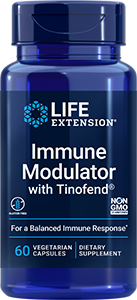Higher plasma vitamin D levels associated with lower biomarkers of cardiometabolic disease
Tuesday, June 18, 2013. The June, 2013 issue of the Centers for Disease Control and Prevention journal Preventing Chronic Disease reports the finding of a reduction in risk factors for cardiometabolic disease among men and women with higher plasma vitamin D levels. Cardiometabolic disease, also known as metabolic syndrome, is characterized by dyslipidemia, dysglycemia, abdominal obesity and hypertension, which greatly increase the risk of cardiovascular disease and diabetes.
Canadian researchers evaluated data from 1,928 men and women between the ages of 6 to 79 years who participated in the Canadian Health Measures Survey. Blood samples obtained during physical examinations were analyzed for glucose, fasting insulin, C-reactive protein, fibrinogen, homocysteine, triglycerides, total cholesterol, high-density lipoprotein cholesterol (HDL-C), low-density lipoprotein cholesterol (LDL-C), apolipoprotein A1, apolipoprotein B and 25-hydroxyvitamin D [25(OH)D].
Vitamin D levels varied according to the month during which plasma levels were sampled. Subjects who had higher levels of vitamin D had reductions in insulin, insulin resistance, triglycerides, total cholesterol, LDL cholesterol and ratio of total to HDL cholesterol. When men and women were separately analyzed, higher plasma vitamin D levels were significantly associated with reduced triglycerides only in men, although a similar, nonsignificant trend was observed in women. And although men had a nonsignificant trend toward lower total and LDL cholesterol in association with elevated plasma vitamin D, the association reached significance only in women. "Although the mechanistic link between 25(OH)D and lipid metabolism remains poorly understood, vitamin D has been proposed to modulate the transcription activity of an array of genes known to be involved in lipid metabolism," Alaa Badawi, PhD and colleagues write. "In addition, previous research suggests that vitamin D may upregulate lipoprotein lipase activity in adipocytes, which would, in turn, result in decreased circulating triglyceride levels."
"Our results contribute to an increasing body of evidence suggesting that vitamin D modulates processes associated with risk of cardiometabolic disease at the population level," they conclude. "These findings may have public health implications for recommending vitamin D to prevent cardiometabolic disease and related conditions."
|
 |
 |
|
On May 25, 2013 at the Heart Failure Association of the European Society of Cardiology's annual meeting, Professor Svend Aage Mortensen of Copenhagen University Hospital reported a significant reduction in mortality among heart failure patients supplemented with coenzyme Q10 (CoQ10) over a two year period.
The Q-SYMBIO study included 420 participants being treated for Class III or IV heart failure as classified by the New York Heart Association. Subjects were randomized to receive 100 milligrams CoQ10 or a placebo three times daily for two years.
At the trial's conclusion, 14% of those who received CoQ10 and 25% of the placebo group experienced a first major adverse cardiovascular event, which included hospitalization due to heart failure, cardiovascular death, urgent heart transplantation or mechanical circulatory support. In addition, the risk of dying of any cause over the course of the trial was twice as great among the placebo group in comparison to those that received CoQ10.
"CoQ10 is the first medication to improve survival in chronic heart failure since ACE inhibitors and beta blockers more than a decade ago and should be added to standard heart failure therapy," Dr Mortensen stated. "Other heart failure medications block rather than enhance cellular processes and may have side effects. Supplementation with CoQ10, which is a natural and safe substance, corrects a deficiency in the body and blocks the vicious metabolic cycle in chronic heart failure called the energy starved heart."
Because statin drugs used for ischemic heart disease lower CoQ10, patients with this condition could also benefit from CoQ10. "We have no controlled trials demonstrating that statin therapy plus CoQ10 improves mortality more than statins alone," Dr Mortensen noted. "But statins reduce CoQ10, and circulating CoQ10 prevents the oxidation of LDL effectively, so I think ischemic patients should supplement statin therapy with CoQ10."
|
Learn about this wonder drug!

Hosted by Michael A. Smith, M.D.
Thursday, June 20 at 3 p.m.
Want to hear some HealthyTalk? Then tune in to Dr. Michael Smith's talk show on Thursday, June 20 at 3 p.m. on www.RadioMD.com. You'll learn all about low-dose Naltrexone … possibly the most important therapeutic breakthrough in immune support in the last 50 years!
Dr. Mike will be joined by Julia Schopick, best-selling author and creator of the award-winning blog HonestMedicine.com, who will discuss this remarkable new drug and its place in treatment protocols for patients with everything from HIV/AIDS to cancer, autoimmune diseases and central nervous system disorders.
You don't want to miss this episode of Healthy Talk with Dr. Mike … the "country doctor with a city education" … because what you know helps ensure healthy choices you can live with!
http://www.healthytalkmd.com |
|

|

|
|
Successful aging is often dependent on a dynamic immune system. But just having a "strong" immune system isn't enough. A healthy and youthful body requires balanced immune-cell signaling to maintain effective and responsive immunity.
That's why Life Extension® now offers Immune Modulator with Tinofend®, a botanical extract that has been shown to support a normal, modulated immune response.
Immune Modulator with Tinofend® provides the versatile Tinospora compounds shown to help maintain the balanced cellular responsiveness, sensitivity and strength of an optimized and properly-modulated immune response.
Tinofend® is a registered trademark of Verdure Sciences, Inc. |
|

|
|
Renowned dermatologist Gary Goldfaden, MD, has developed novel solutions for the most common skin problems encountered by maturing adults. Based on extensive clinical testing, these formulas are designed with potent antioxidant tea extracts (red, green, and white) to correct specific areas of concern, such as the appearance of darkness and puffiness under the eyes, fine lines, rough skin, loose skin, and more. These products can be used in conjunction with any other skin treatments or products. They are specially formulated exclusively for Life Extension.
This gentle, hypoallergenic foaming cleanser is fortified with herbals and natural antioxidants (red, white and green tea extracts). Excellent for all skin types, including dry and sensitive skin, it can be used daily as needed. |
|
|














